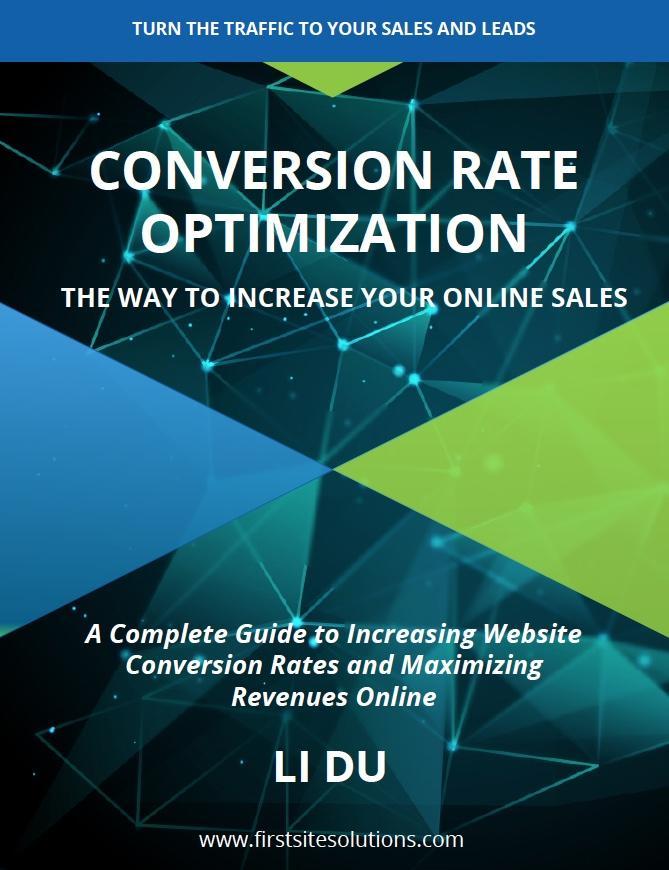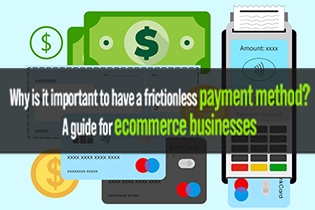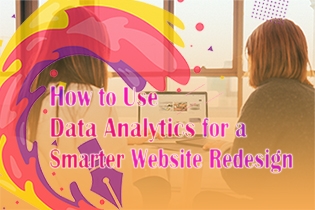
There’s data, data, and even more data. It’s everywhere. Enterprises are investing heavily in the collection, storage, and organization of data. The question is why.
Having more data is valuable for business insights. It enhances customer experiences, highlights previously missed opportunities, pinpoints areas of improvement, identifies new revenue streams, and much more.
For digital businesses, it’s a means of thriving in the fierce ecommerce landscape. But entrepreneurs know that merely hanging onto data is not enough. The secret lies in transforming the information into actionable strategies.
And that means developing and applying algorithms in order to make sense of the massive amounts of your business data.
And this is why Artificial Intelligence can make a significant impact.
Companies around the world recognize the need to incorporate AI-backed strategies into their businesses.
According to a recent survey by New Vantage, 91.5% of the companies surveyed ongoing state investments in AI. Over the past four years, this technology has witnessed an impressive 270% growth, becoming one of the fastest-growing and popular data-driven technologies used worldwide.
It’s clear that AI is now more than just a buzzword. It has successfully permeated into all walks of life and brought the technology into the mainstream. While every industry is exploring its benefits, businesses are taking a keen interest in how AI can help them gain a competitive edge.
The power of artificial intelligence for online businesses
Businesses have much to gain by incorporating AI, especially because it encompasses various technologies, such as machine and deep learning, personalized product recommendations, predictive analytics, automated reporting, voice recognition, automated communications, and much more. It’s clear that data-driven companies are creating better business outcomes, especially in driving sales and increasing ROI.
According to McKinsey, 44% of businesses that have already used AI report a reduction in costs in departments where the technology was implemented. In fact, sales teams say it’s helping them achieve their targets easily. Flyaps.com quoted sales saw up to 60% cost reductions with 50% more sales.
But the expectation in the potential behind this technology is much greater.
Nearly 80% of business executives believe that AI adoption will make their work efficient and easier, while 75% of business owners say AI will help explore new opportunities. Similarly, 70% of sales teams expect better intelligence forecasting, while 66% anticipate better opportunity insights and lead prioritization.
AI in sales - the key to leveraging your business
Technology waits for no one. As a sales manager or a marketer, you know it’s time to hop on board the AI Express. 1 in 4 sales teams is already using AI in their day-to-day work. If you’re not one of them, here are 13 ways your businesses can benefit from it too.
1. Identify leads more accurately
The latest business trends indicate that a majority of online businesses are utilizing social media platforms to boost sales by connecting with consumers on a personal level. But with billions of people active on numerous channels, it can be overwhelmingly time-consuming to find and target leads that are more likely to convert. Moreover, it could considerably slow down your marketing efforts.
But with the help of AI, an algorithm can help convert the data you’ve collected through analytics tools into meaningful insights - not only faster but more efficiently. Identifying and connecting with leads in your industry couldn’t be easier.
2. Build a rich sales pipeline
Businesses need a constant revenue stream in order to remain viable. While closing leads is essential, the focus should be on creating a rich pipeline of qualified potential consumers. AI not only helps to fill the business pipeline quickly, but it also allows businesses to remain on target and achieve more successful sales.
So how does this work?
AI tools can discover new leads for you within your databases or those within the target audience that have not shown up on your radar.
3. Prioritize leads
Not all leads are equal. Some are more likely to convert than others. Ideally, you should be focusing on those leads that will convert faster. After all, you want to snag those before your competitors do.
Identifying these leads requires a great deal of consumer data and business foresight. Taking the manual route could let prospects slip in between your fingers. However, AI tools can help rank leads based on their likelihood to close.
As a salesperson, you can prioritize working on the most promising leads first, boosting sales and revenue.
4. Amp up customer service
For a business to remain profitable, it needs to step ahead of the crowd and claim as many customers as possible. AI is helping brands make the most of the opportunities available in the market.
So even with a targeted sales approach, your sales representatives may not be able to reach out to all the potential prospects.
Some may show up on your website on their own. This is where AI-powered chatbots can work their magic. By engaging with leads in a personalized manner, chatbots can make consumers stay on the website longer, increasing the chances of conversions. That’s why 23% of customer service organizations use them.
So it all comes down to perfecting customer service. Nearly 66% of executives say AI can improve and strengthen collaboration between humans and machines. This has resulted in a growing implementation of AI among organizations. AI-powered solutions allow sales representatives to enhance customer service and improve engagement levels. Moreover, they can satisfy customers by responding to their needs in real-time or offer value-added personalized services, both of which can have a notable influence on CX and increase sales volume.
5. Align products with customer queries
According to Gartner, only when organizations shift their focus from ‘big data’ to ‘big answers’ will AI's value begin to emerge. This is possibly the biggest benefit of AI to online business owners.
By incorporating AI-powered search options on their websites, brands can optimize the customer experience. It helps them match customer search queries with their inventory and product information to generate the right results. Accurate search results encourage customers to continue with the purchase, boosting sales in the long-run.

6. Facilitate product content management
AI capabilities can go a long way in making your online business profitable. They can help catalog products appropriately and manage inventory from every touchpoint.
By tracking and organizing product information, AI helps to provide customers with a consistent, flawless online shopping experience.
7. Recognize business opportunities automatically
Wouldn’t it be wonderful if your business was notified every time your customer was about to run out of a particular item? That means reaching out to consumers even before they realize they need a product. With IoT technology, you can do just that.
IoT syncs information from different devices, which in turn is jumpstarting AI-based applications into our lives. The technology reaffirms consumer needs, bolstering business for retailers everywhere.
8. Refine sales pitches
Online customers love to browse as it helps to recreate the feeling of window shopping in malls. This is the moment businesses can lure prospects into a purchase or convince a one-time shopper into making repeat purchases.
But you can’t simply throw stuff at consumers and hope that they’ll eventually decide to buy from you. That may irk customers, making them avoid your brand altogether.
AI can refine your approach with useful information about consumer buying patterns. AI tracks consumer’s habits, preferences, search history, and recently purchased items. With the help of predictive analytics, brands can present product recommendations that significantly align with consumer needs. This persuasive strategy offers customers appropriate suggestions, making them realize just how much they need these products.
Netflix says 80% of watched content is based on algorithmic recommendations, while 35% of Amazon's revenue is generated by its recommendation engine.

It is a great opportunity to drive customer satisfaction and develop stronger relationships with your customers. You can expect a significant increase in ecommerce sales when your customers receive personalized suggestions from brands they trust.
9. Improve upselling and cross-selling strategies
Finding new customers can cost up to five times more than retaining an existing one. So business owners typically focus on selling to a current customer than to a new prospect.
The good news is that once you are able to get on the good side of your customers, they are more likely to pay attention to future recommendations and are more likely to be influenced by your discrete sales pitches. Yep, you guessed right. They end up adding more products to their cart than they initially considered buying in the first place.
In fact, AI-powered algorithms can help businesses identify existing clients that are more likely to purchase an updated version of what they currently own (up-sell) as well as those that are most likely to invest in a new product altogether (cross-sell).
Either way, sales, and profit increase while slashing marketing costs.
10. Improve sales forecasting efforts
Sales managers are required to predict expected sales for the next quarter, also known as sales forecasting. It’s a fundamental aspect of business management as it offers statistics that are essential for making intelligent business decisions. Without a clear picture of what future sales will be, online business owners cannot efficiently manage inventory, resources, cash flow, or even plan for growth.
However, AI-backed solutions enable managers to predict rather accurately where the company’s sales will stand for the next quarter.
11. Automate tasks and boost productivity
AI programs automate tasks and allow your business to work around the clock, including sending emails and messages, updating CRM systems, adding appointments onto your calendar, etc.
And this is excellent- it keeps you competitive and improves productivity. According to PWC, 54% of business executives claim that AI adoption has led to an increase in productivity by streamlining processes and automating tasks.
In fact, it’s the driving force behind personalized customer services, better engagements, and business growth.
12. Facilitate customer search preferences
People search while on the go, so voice and image search has picked up considerably. Amazon's Echo voice-activated system and Google incorporating visual search capabilities signify the beginning of a new era.
But now, online businesses can utilize AI-powered tools to incorporate visual search capabilities so customers can use images from their phone’s gallery and search for similar-looking store’s items.

It enhances CX by instantly providing relevant search results and saves the consumers from guessing what keywords to enter in the search bar. More importantly, by incorporating emerging technologies into your website, you attract more traffic to your site and entice customers to try your offerings. This increases the chances of sales exponentially.
13. Offer Augmented Reality experiences
Much like visual search, AR is an exciting new concept that businesses are beginning to provide. The novelty of such shopping experiences creates hype around the brand. But what could be better than allowing your customers to try products virtually? Makeup brands like L'oreal, NYX, and Sephora are already making headway in this department.
Facial-recognition technology scans a user’s face. When they click on a product, it is automatically applied to their virtual face.

IKEA lets you place furniture virtually in your space. AR capabilities on IKEA’s website measure the dimensions of a room and allow you to select a piece of furniture from its 2,200-item catalog and to drop the image into the photo.
These offerings help eliminate doubts that prospects may have about your product and guides prospects towards a purchase.
It’s time to harness the power of AI for your online business
AI is being used to solve problems across industries. Many online businesses are already using AI-backed innovations to improve ecommerce sales and ROI. Considering all the above benefits, it’s clear that this trend will continue to rise.
More importantly, with the amount of attention this technology is receiving, the fear of losing out is real. It’s time to start looking at possible AI-tools for your business. A future without it just seems impossible.







